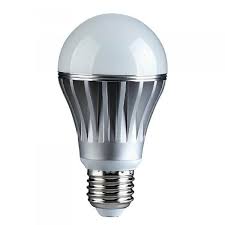The easiest way of proving you are patriotic? Toss out your CFLs and other lights snd replace them with LED bulbs! Reember? Prime Minister Narendra Modi in January last year launched the Domestic Efficient Lighting Programme, and described the shift to LED (light-emitting diode) as “an act of patriotism” and “social service” to save the environment.
Since then, the government has distributed more than 100 million LED bulbs, and hopes to replace 770 million in all. That would help India free up 20,000MW, which is 7 per cent of our installed capacity and nearly four times the peak power demand for New Delhi.
A government programme to distribute LED bulbs to every Indian household and replace streetlights with them in cities is an important step for energy conservation in a country where demand for power is expected to double in the next five years.
And how is it done? LEDs are 10 times more expensive than normal bulbs! But the government has so far been providing bulbs at a subsidised rate of below 100 rupees (S$2.04) each when actual costs can exceed 250 rupees.
You can buy four LED lights after paying 10 rupees upfront, from your neighbourhood electricity ocfice. After that, you follow up by instalments of 10 rupees added to your electricity bill for each bulb over eight months.
A user claims, “I used to get a bill of around 650 to 700 rupees. Now I get a bill of around 500 rupees. But I don’t know if it is just because of the LED bulbs. I haven’t done an analysis.”
India’s power consumption is expected to increase as more and more villages get electricity and its population continues to grow. About 300 million Indians do not even have access to electricity, more than 60 per cent of which is generated by coal plants.
But the government also faces the challenge of protecting the environment at a time when climate change has become a reality. Doyou know that India is the third-largest greenhouse gas polluter after China and the US?
Last year, Mr Modi called the floods in Tamil Nadu, in which 470 people lost their lives, “climate change’s fast-growing impact”. This year the country is facing its worst drought in recent times
The switch to LED bulbs and greater renewable energy investment are crucial for India to meet its Paris climate agreement commitments. The LED project, officials said, is part of efforts to cut India’s carbon footprint, which includes boosting the share of renewables and other low-carbon sources from 13 per cent to 40 per cent in 13 years.
Two weeks ago, the southern state of Goa, a tourist destination, became the latest of around a dozen states to launch the LED bulb scheme. It is also looking at converting all 160,000 streetlights to LED in two months. A part of the federal plan includes retrofitting the country’s 35 million streetlights.
“Goa will be the only state to be entirely covered by LED. Whatever the consumption is now, we will save 50 per cent,” said Mr Dipak Bhajekar, Chief Electrical Engineer of the Goa Electricity Department.
THE FIGURES
NUMBER OF CONVENTIONAL BULBS TO REPLACE: 770 million
NUMBER OF LED BULBS PROVIDED BY GOVERNMENT SO FAR: 100 million
EXPECTED CUT IN INSTALLED LOAD: 20,000MW



This has been a brilliant move by the national government. All right thinking people should endorse this and try to use LED bulbs. One of the people I know since last year has been gifting LED bulbs during Diwali to the postman, garbage man, servants, etc. He is doing it this year as well.